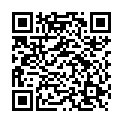|
|
|
| Module code: KI330 |
|
|
4V (4 hours per week) |
|
5 |
| Semester: 3 |
| Mandatory course: yes |
Language of instruction:
German |
Assessment:
Ninety-minute written exam
[updated 20.03.2007]
|
KI330 (P211-0018) Computer Science and Communication Systems, Bachelor, ASPO 01.10.2014
, semester 3, mandatory course
|
60 class hours (= 45 clock hours) over a 15-week period.
The total student study time is 150 hours (equivalent to 5 ECTS credits).
There are therefore 105 hours available for class preparation and follow-up work and exam preparation.
|
Recommended prerequisites (modules):
None.
|
Recommended as prerequisite for:
KI576
KI698 Measurements and Simulations in Communications Engineering
[updated 13.02.2017]
|
Module coordinator:
Prof. Dr. Albrecht Kunz |
Lecturer:
Prof. Dr. Albrecht Kunz
Dipl.-Ing. Thomas Bertel
[updated 22.10.2010]
|
Learning outcomes:
Students will acquire an overview and a deeper understanding of modern communications engineering. The aim of this module is to teach signal and systems theory as the basis of today’s communications engineering systems. Building on this foundation, the course will cover the properties and characteristics of transmission channels, modulation methods and channel coding schemes. By introducing the design concepts used in modern mobile communications systems (such as UMTS) students will also gain an appreciation of the hardware and technology in current use.
[updated 13.03.2007]
|
Module content:
1. Fundamentals of signal and systems theory
2. Transmission channels
3. Message transmission
4. Modulation techniques
4.1......Analogue modulation techniques
4.2......Digital modulation techniques
5. Channel coding
6. Concepts in mobile communications
[updated 13.03.2007]
|
Recommended or required reading:
HERTER E., LÖRCHER W., Nachrichtentechnik, Hanser
JONDRAL F., Nachrichtensysteme, J. Schlembach
JOHANN J., Modulationsverfahren, Springer
KIEF K., Weitverkehrstechnik, Vieweg
MÄUSL R., SCHLAGHECK E., Meßverfahren in der Nachrichtenübertragungstechnik, Hüthig
MÄUSL R., Analoge Modulationsverfahren, Hüthig
MÄUSL R., Digitale Modulationsverfahren, Hüthig
TORNOW W., Taschenbuch der Nachrichtentechnik, Schiele u. Schön
KAMMEYER K.D., Nachrichtenübertragung, Teubner
WERNER M., Nachrichtentechnik, Vieweg
SCHÜSSLER H.W., Netzwerke, Signale und Systeme, Band II
[updated 13.03.2007]
|
Module offered in:
WS 2017/18,
WS 2016/17,
WS 2015/16,
WS 2014/15,
WS 2013/14,
...
|


